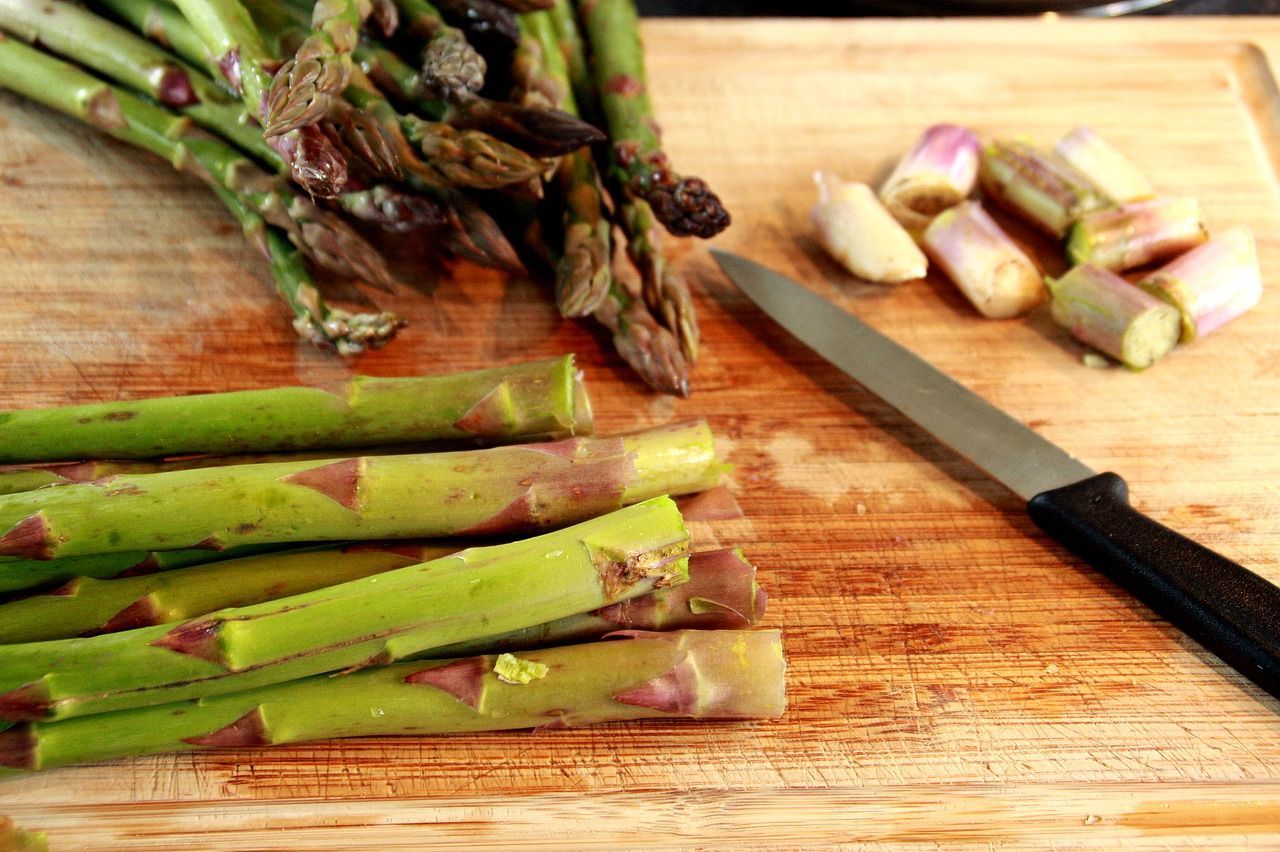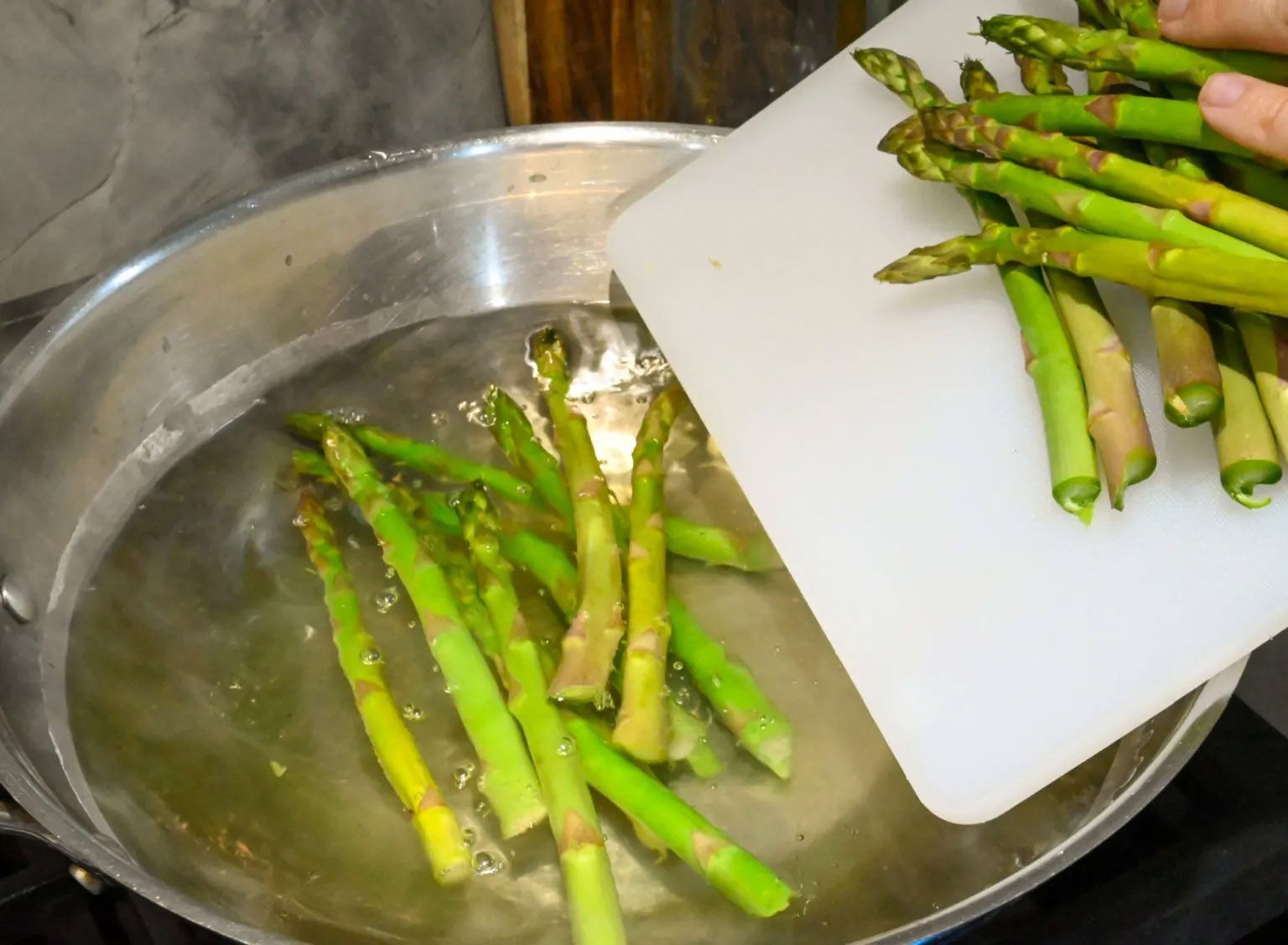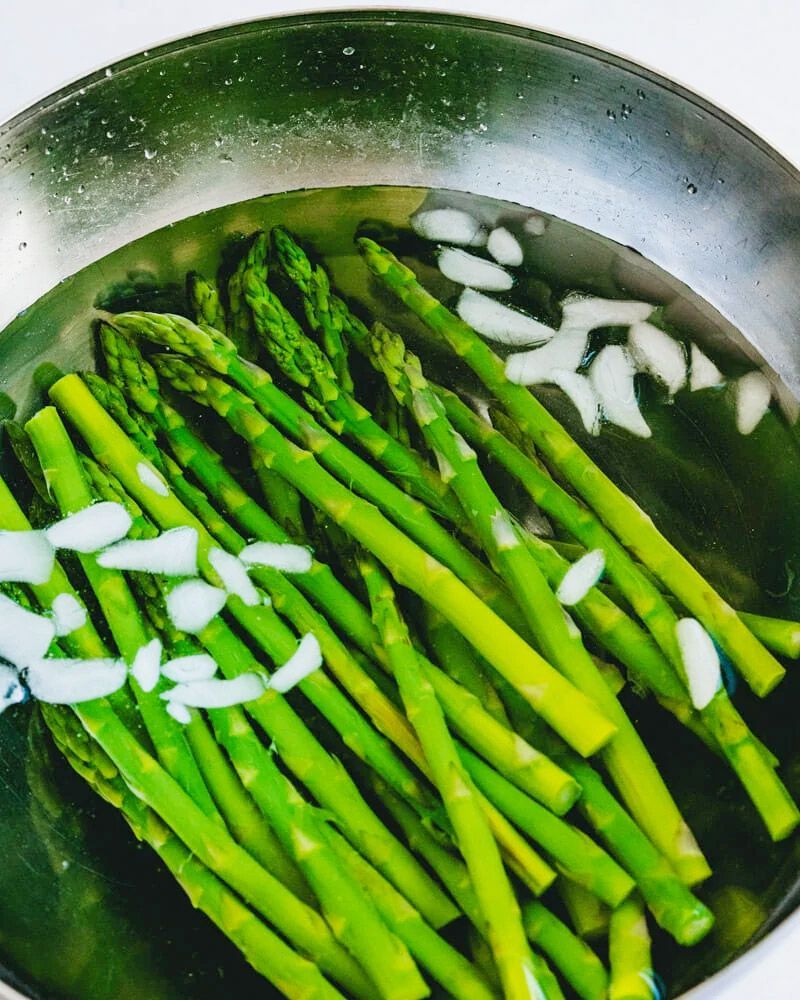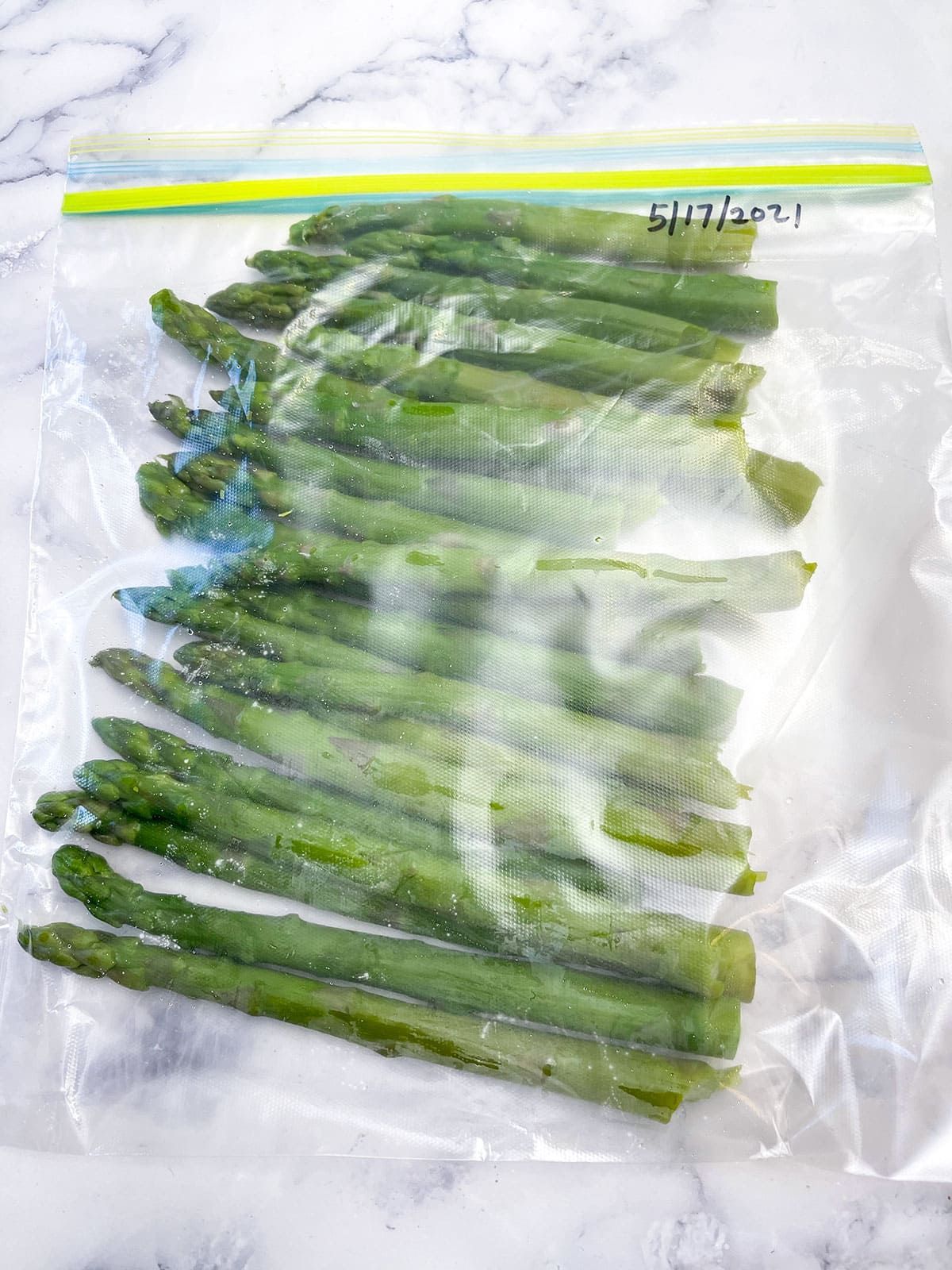Our recommendations are made independently. We may receive commissions from purchases made via our links.
How to Freeze Asparagus
Learning how to freeze asparagus is easy. Freeze some asparagus now and enjoy the earthy taste of this Spring vegetable well beyond its season.
Asparagus is not only a delicious addition to any meal, but it’s also packed with healthy nutrients, and should be made an essential part of any diet.
Research has shown that asparagus has potential health benefits such as improving digestion and lowering blood pressure, amongst many others. Knowing how to freeze asparagus properly will help you reap its health benefits at any time of the year.
Unfortunately, fresh asparagus is only in season from late February to June, with April being the peak time. So if you’re intent on incorporating it into your diet regularly, dive into this instructive guide on how to freeze asparagus.
Can You Freeze Asparagus?
Of course, you can! Like most vegetables, asparagus is safe to freeze.
Once frozen properly, asparagus will retain its flavor and nutrients for the next 10-12 months.
In its fresh state, asparagus is high in water content. As it freezes, the water changes into ice crystals that puncture the cell walls in the succulent stems.
Consequently, defrosted frozen asparagus has a softer texture. However, this change in texture won’t be a problem if you use frozen asparagus in cooked recipes.
Frozen asparagus is an excellent ingredient to keep on hand for an easy nutritional boost to soups, stews, casseroles, and baked dips.
To thaw it out, there are three methods:
- Let the frozen asparagus thaw in the fridge for several hours or overnight before cooking.
- Submerge them in cold water and constantly change the water every 30 minutes until defrosted.
- Remove your frozen asparagus packaging and put the spears in a bowl. Microwave them with a plate covering your bowl, cooking in slow increments, and checking up on them regularly.
Can You Freeze Cooked Asparagus?
Instead of throwing away cooked asparagus leftovers, you can freeze them and enjoy them again in your next meal. It’s very easy since the asparagus has already been cooked and you don’t need to wash, cut or blanch it.
All you need to do is to let the cooked asparagus cool down to room temperature, then put them in airtight containers and freeze. Simple as that!
Frozen cooked asparagus lasts between 10-12 months.
Alternatively, you can blend cooked asparagus into soups and freeze it. Make sure to use a non-dairy recipe to get the best result for freezing.
Asparagus soup can also be frozen and be kept for a maximum of 6 months.
How to Freeze Asparagus
1. Freezing Fresh Asparagus
The best way to preserve fresh asparagus is to freeze it. You will get a better result than canning, which might yield a mushy, dull-colored product.
Follow the guide below for detailed instructions.
Wash
Sort through the bundles of asparagus that you have. Pick out only the thick spears, as they can hold up better in low temperatures than thinner ones. Wash the spears thoroughly by hand under cold running water.

Trim
Bend the end of the raw spear and snap off the white woody nub at its natural breaking point or another way to trim is to simply cut off about an inch from the bottom.

Blanch
- Fill a large pot with just enough water to submerge the asparagus.
- Bring the pot of water to a boil.
- While the water heats, prepare a bowl of iced water.
- Once the water in the pot starts boiling, add your asparagus. Blanch small spears for 2 minutes, medium spears for 3 minutes, and large spears for 4 minutes.

- Take the asparagus out with a pair of tongs or a mesh spider and plunge them into the ice bath. Let them cool down for 1-2 minutes.

- Drain and pat them completely dry with a clean kitchen towel.
Freeze
Arrange the pieces on a baking sheet in a single layer. Freeze them for 1-2 hours until solid.
Next, put them in a freezer bag. Carefully label and date them.
Finally, place them in the freezer again and you’re done.

2. Without Blanching
Freezing asparagus unblanched is a quick and easy way for you to preserve them.
To do this, follow the instructions of freezing fresh asparagus mentioned above but skip the blanching steps.
Unblanched, asparagus does not lose its nutrients to heat. On the other hand, without enzyme inactivation through blanching, the vegetable tends to spoil faster.
Keep in mind that you should only use this method when you are planning to use them within 6-8 weeks.
To get the best result, apply all the advice below when you freeze unblanched asparagus:
- Make sure that your kitchen area and all utensils are clean.
Dirty cooking places and kitchen tools could spread bacteria to your asparagus, causing them to spoil faster.
- Remove as much air as possible from the container and freezer bag before putting them in the freezer. Air contact can reduce the asparagus’s quality over time.
If possible, consider vacuum sealing.
- Place them in the coldest part of the freezer. This is usually in the rear center portion of the freezer. Avoid the door shelves as they are the warmest spots.
- Don’t store them near apples, bananas, or any other ethylene-producing fruits. The ethylene gas can cause deterioration in the asparagus.
Conclusion
By learning how to freeze asparagus, you will have the skills and techniques to preserve asparagus for longer. Try it out and you can enjoy this Spring veggie way past its season.





